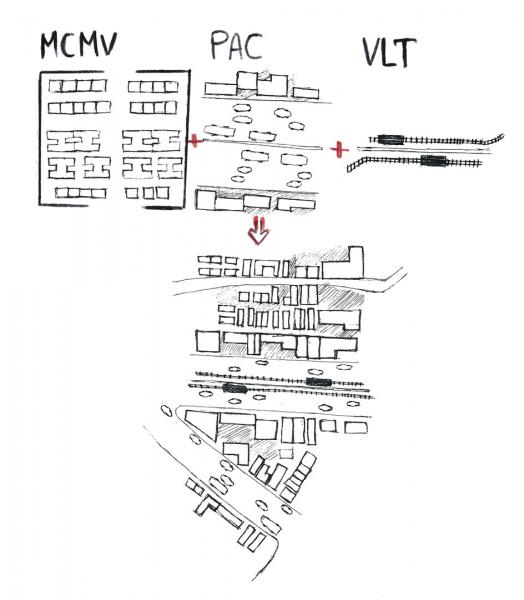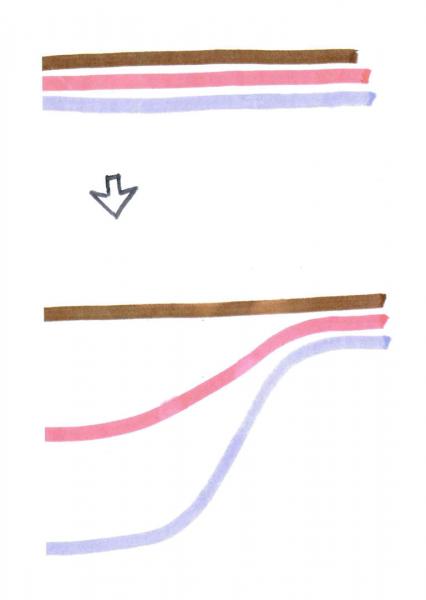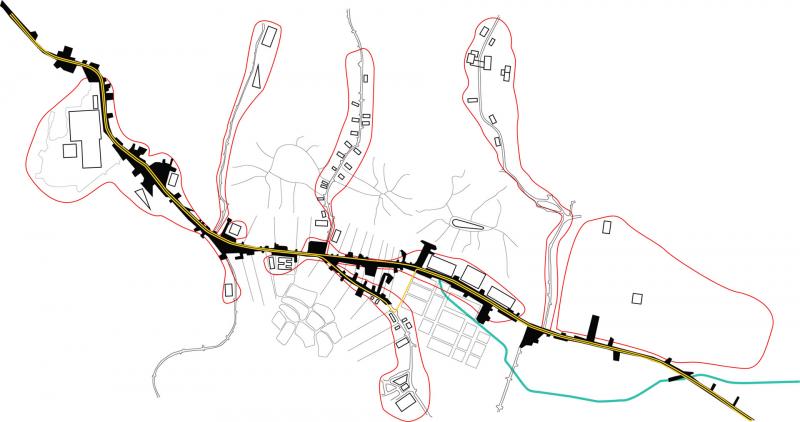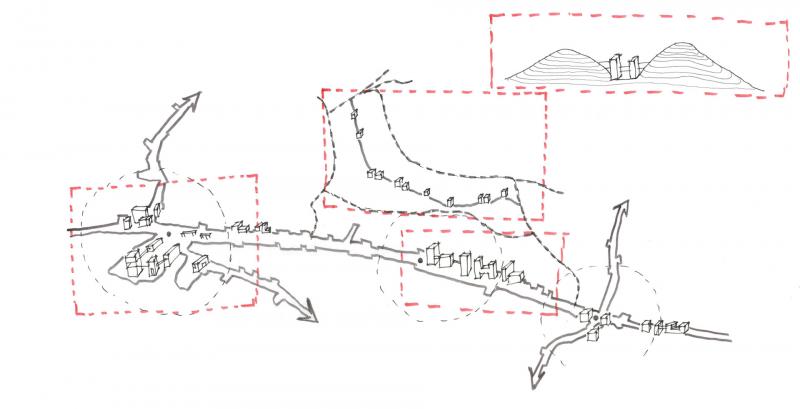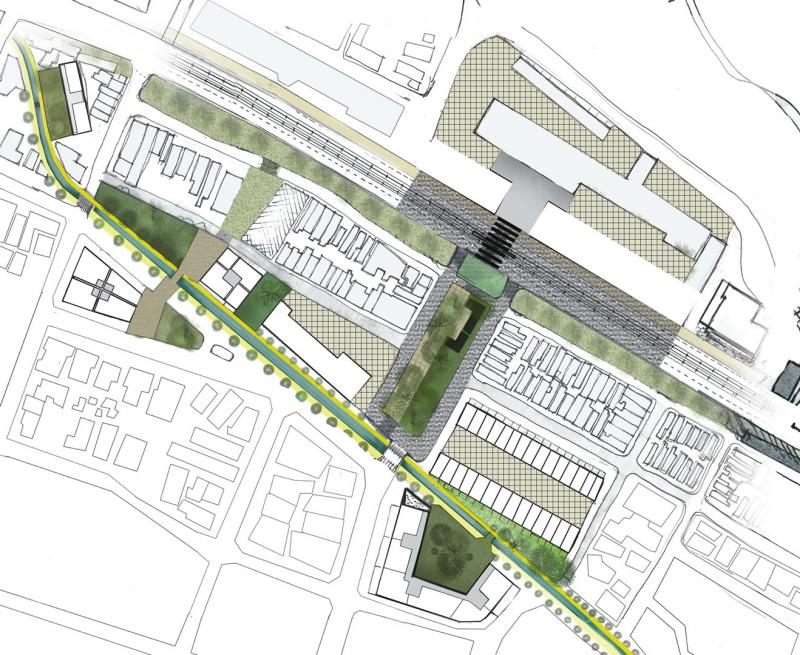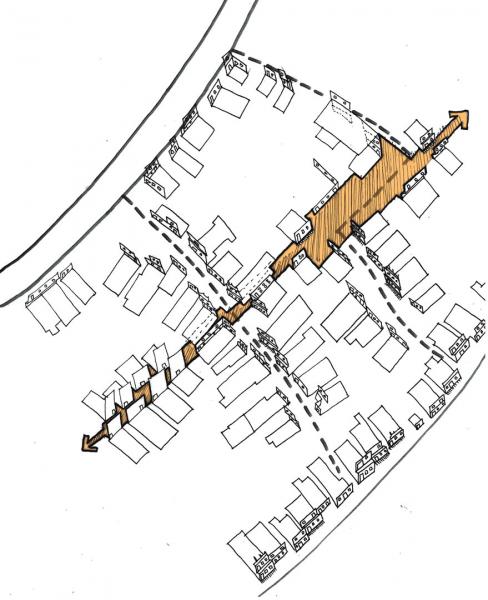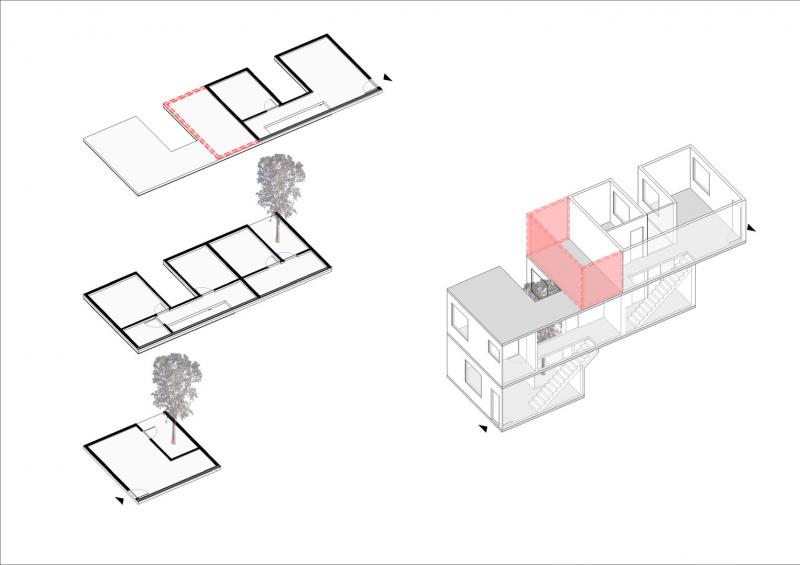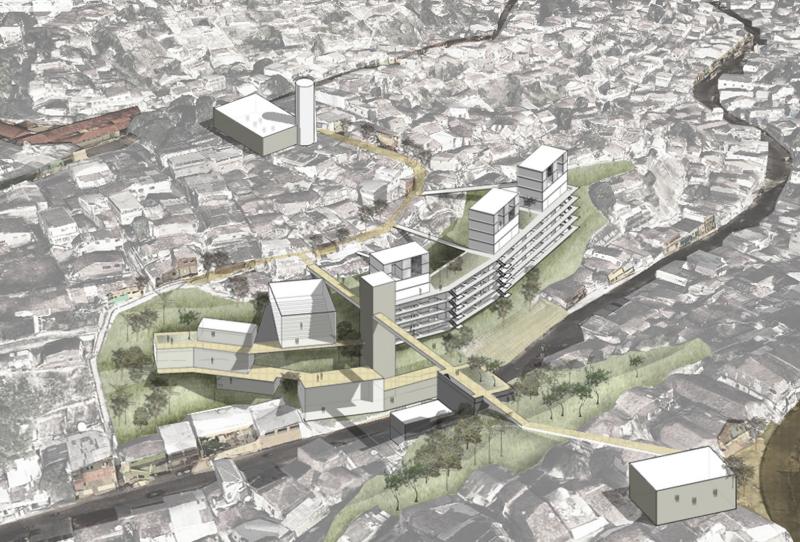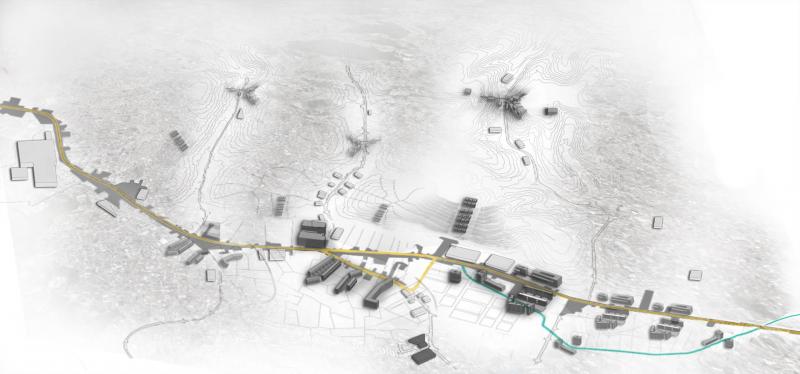Bundling
Recife design workshop Mobilidade Habitada/ Living Mobility:
Tutors: Abigail Batchelor, Dominic Papa
Current mass housing projects and investments in public transport in Recife offer opportunities to rethink the role of mobility and housing, strengthening spatial relations between dwelling, urban infrastructure, production and services. The concept of bundling different federal and municipal tools for public investment, whilst spatially unbundling infrastructural investment, form the basis for the four spatial explorations in the territory of the Avenida Norte. An integrated mobility system must be understood beyond the transportation impact, in a way that articulates multiple scales, actors, institutions and social agencies.The shortcomings of the MCMV program lie not in its ability to deliver the quantitative aspect of housing but rather in its qualitative. By critically analyzing these models of housing and suggesting alternative types we propose multi scalar approaches for more effective urban areas. Urban exploration and typological reasoning, which involves generically interpreting urban challenges and using spatial tools to inform strategies, are the methodologies chosen to suggest strategies for integrating transportation investments and delivering viable housing typologies that promote urban coherence.
Recife Design Workshop: Social Housing and Urban Mobility
This intensive design workshop in Recife, in collaboration with the Federal University of Pernambuco, explored a study area in relation to the potential of social housing and urban mobility in urban development.
Current mass housing projects and investments in public transport in Recife offer opportunities to rethink the role of mobility and housing, strengthening spatial relations between dwelling, urban infrastructure, production and services. The aim of linking different federal and municipal tools for public investment, whilst spatially rethinking infrastructural investment, forms the basis for the four spatial explorations in the territory on both sides of the Avenida Norte, a main transport route.
We formed four groups, mixing students and teachers from both institutions, for ten days of intensive work. Each group critically interpreted the urban challenges and developed spatial responses to test strategies for development. The proposals were presented for discussion in a major debate with representatives of the existing citizens’ groups, architects and planners, officials from the City, and officials from the Federal Ministry for Cities.
We will produce a second publication from this work, following the book: “Housing as Urbanism” published from last year’s Recife design workshop.
Unbundling
Potential
Interventions
Section site
Plan site
Diagram site
Typology site
AXO site
Final

